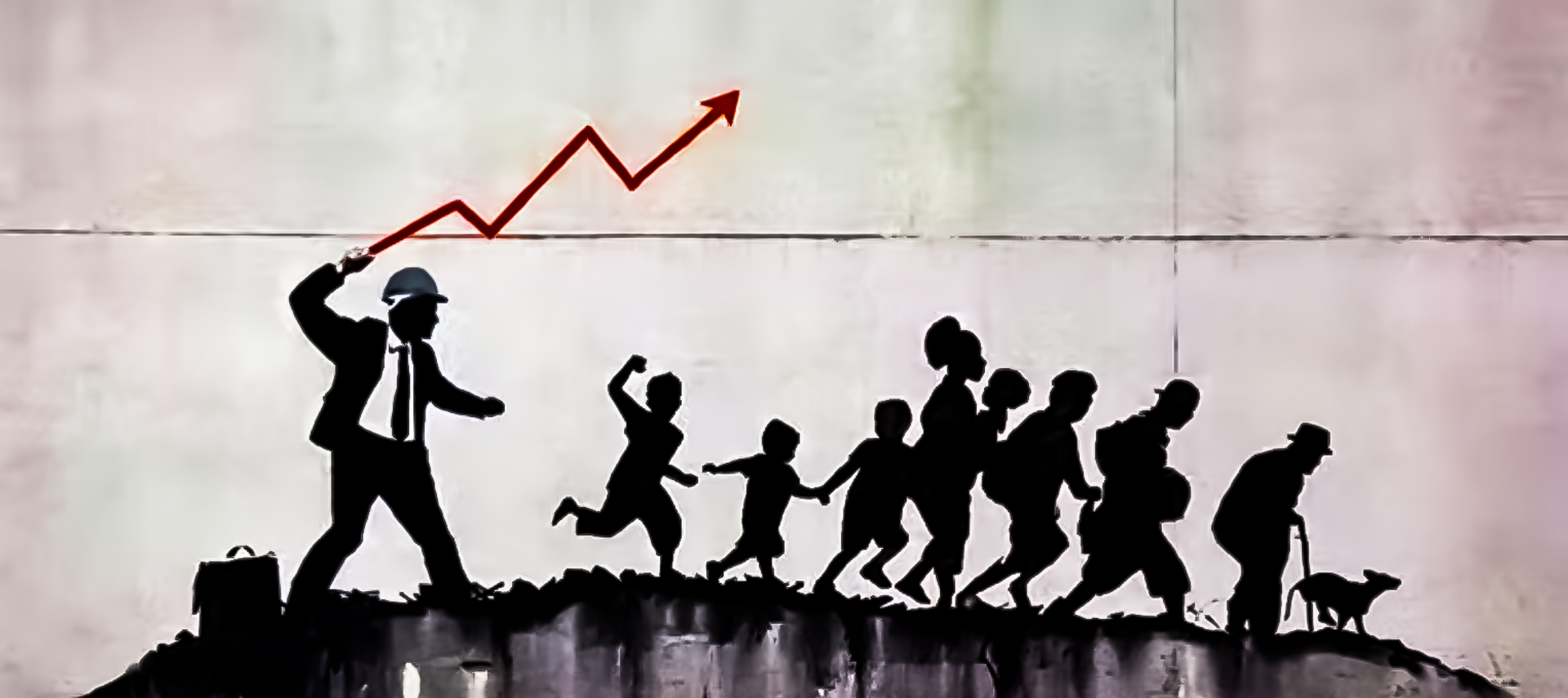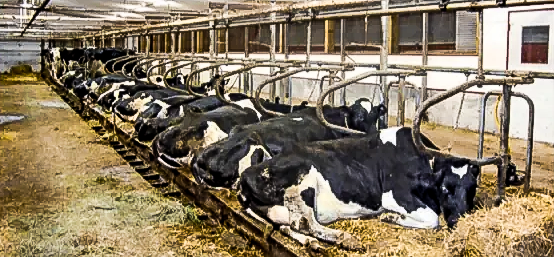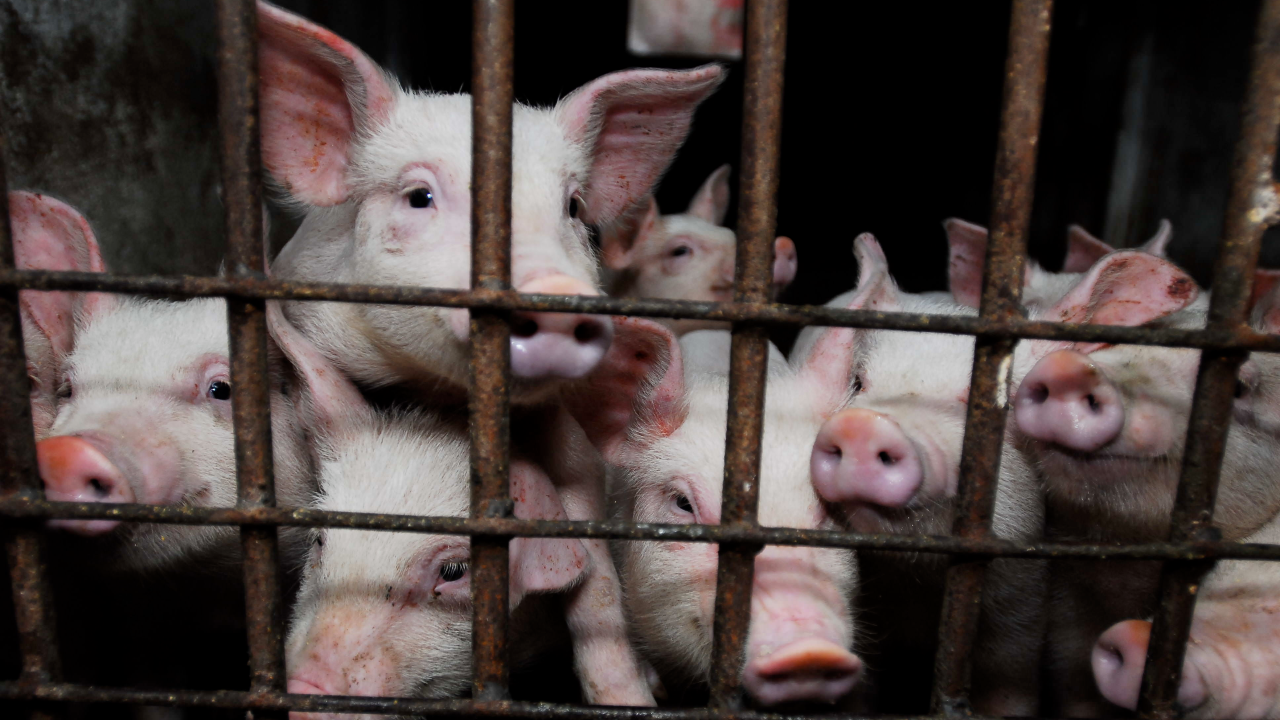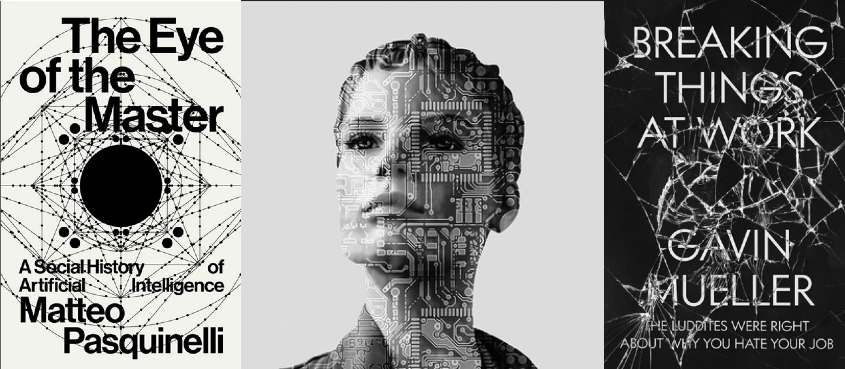Labor Process
Worn Out: Retail Workers vs. Digital Surveillance
Recording available on YouTubeBeneath the success of fast fashion, a grimmer story is told by Madison Van Oort in Worn Out: How Retailers Surveil and Exploit Workers in the Digital Age and How Workers Are Fighting Back. Going undercover in two of the world's largest fast fashion stores in New York City, she observed firsthand how data and surveillance shape the lives of the people who do the actual producing and selling.
Reading Marx’s Capital, Volume I (second series)
Online: Zoom link will be provided to registered participantsSecond series in our close reading and discussion of Marx's magnum opus, with Lisa Maya Knauer and other facilitators from the MEP's Capital Studies Group. This series covers parts 3 and 4 of Capital I, on the production of absolute and relative surplus-value.
Animals at Work Under Capitalism
Online: Zoom link will be provided to registered participantsA discussion and reading group on the central role of human and nonhuman animal labor in the capitalist economy, both historically and today. What are the anthropocentric premises underlying mainstream understandings of labor in Marxist theory? How might we expand our thinking to include the multiple forms of nonhuman labor necessary for capitalism? What kinds of labor do nonhuman animals provide in production, and on what cultural, ideological and economic bases is work divided among people, nonhuman animals and machines?
Reading Marx’s Capital, Volume I (second series)
Online: Zoom link will be provided to registered participantsSecond series in our close reading and discussion of Marx's magnum opus, with Lisa Maya Knauer and other facilitators from the MEP's Capital Studies Group. This series covers parts 3 and 4 of Capital I, on the production of absolute and relative surplus-value.
Animals at Work Under Capitalism
Online: Zoom link will be provided to registered participantsA discussion and reading group on the central role of human and nonhuman animal labor in the capitalist economy, both historically and today. What are the anthropocentric premises underlying mainstream understandings of labor in Marxist theory? How might we expand our thinking to include the multiple forms of nonhuman labor necessary for capitalism? What kinds of labor do nonhuman animals provide in production, and on what cultural, ideological and economic bases is work divided among people, nonhuman animals and machines?
Reading Marx’s Capital, Volume I (second series)
Online: Zoom link will be provided to registered participantsSecond series in our close reading and discussion of Marx's magnum opus, with Lisa Maya Knauer and other facilitators from the MEP's Capital Studies Group. This series covers parts 3 and 4 of Capital I, on the production of absolute and relative surplus-value.
Animals at Work Under Capitalism
Online: Zoom link will be provided to registered participantsA discussion and reading group on the central role of human and nonhuman animal labor in the capitalist economy, both historically and today. What are the anthropocentric premises underlying mainstream understandings of labor in Marxist theory? How might we expand our thinking to include the multiple forms of nonhuman labor necessary for capitalism? What kinds of labor do nonhuman animals provide in production, and on what cultural, ideological and economic bases is work divided among people, nonhuman animals and machines?
Reading Marx’s Capital, Volume I (second series)
Online: Zoom link will be provided to registered participantsSecond series in our close reading and discussion of Marx's magnum opus, with Lisa Maya Knauer and other facilitators from the MEP's Capital Studies Group. This series covers parts 3 and 4 of Capital I, on the production of absolute and relative surplus-value.
Reading Marx’s Capital, Volume I (second series)
Online: Zoom link will be provided to registered participantsSecond series in our close reading and discussion of Marx's magnum opus, with Lisa Maya Knauer and other facilitators from the MEP's Capital Studies Group. This series covers parts 3 and 4 of Capital I, on the production of absolute and relative surplus-value.
Reading Marx’s Capital, Volume I (second series)
Online: Zoom link will be provided to registered participantsSecond series in our close reading and discussion of Marx's magnum opus, with Lisa Maya Knauer and other facilitators from the MEP's Capital Studies Group. This series covers parts 3 and 4 of Capital I, on the production of absolute and relative surplus-value.
Reading Marx’s Capital, Volume I (second series)
Online: Zoom link will be provided to registered participantsSecond series in our close reading and discussion of Marx's magnum opus, with Lisa Maya Knauer and other facilitators from the MEP's Capital Studies Group. This series covers parts 3 and 4 of Capital I, on the production of absolute and relative surplus-value.
Reading Marx’s Capital, Volume I (second series)
Online: Zoom link will be provided to registered participantsSecond series in our close reading and discussion of Marx's magnum opus, with Lisa Maya Knauer and other facilitators from the MEP's Capital Studies Group. This series covers parts 3 and 4 of Capital I, on the production of absolute and relative surplus-value.
Animals, Capitalism, Marxism: A Conversation
Online: Zoom link will be provided to registered participantsDinesh Joseph Wadiwel and Alex Blanchette explore the potential and limits of Marxist theory for addressing the roles and fates of nonhuman animals, as well as ways to connect anticapitalist struggles to animal liberation and environmental justice. Wadiwel is the author of Animals and Capital and Blanchette is the author of Porkopolis: American Animality, Standardized Life, and the Factory Farm.
AI versus Labor: Luddism and Beyond
Online: Zoom link will be provided to registered participants8 weekly sessions starting Oct 1. Is Artificial Intelligence (AI, sic) really the dire threat to the future of humanity as even some of its proponents claim, or is it a more mundane and familiar threat to working people who face loss of their livelihoods and/or further speed-up and alienation? The entire history of industrial capitalism is punctuated by recurring waves of automation to reduce labor costs and turnover time, each time provoking strong resistance by the affected workforce. This reading group will probe the history both of AI and computer technology specifically and of working-class resistance to capitalist automation in general.
Marx’s Capital Volume 1: A Short Course for Today
Online: Zoom link will be provided to registered participantsHave you always wanted to study Marx’s Capital, Vol 1, and hesitated because of the time commitment to read the entire volume from start to finish? Join us for a 12-week study group covering key sections of the book.






